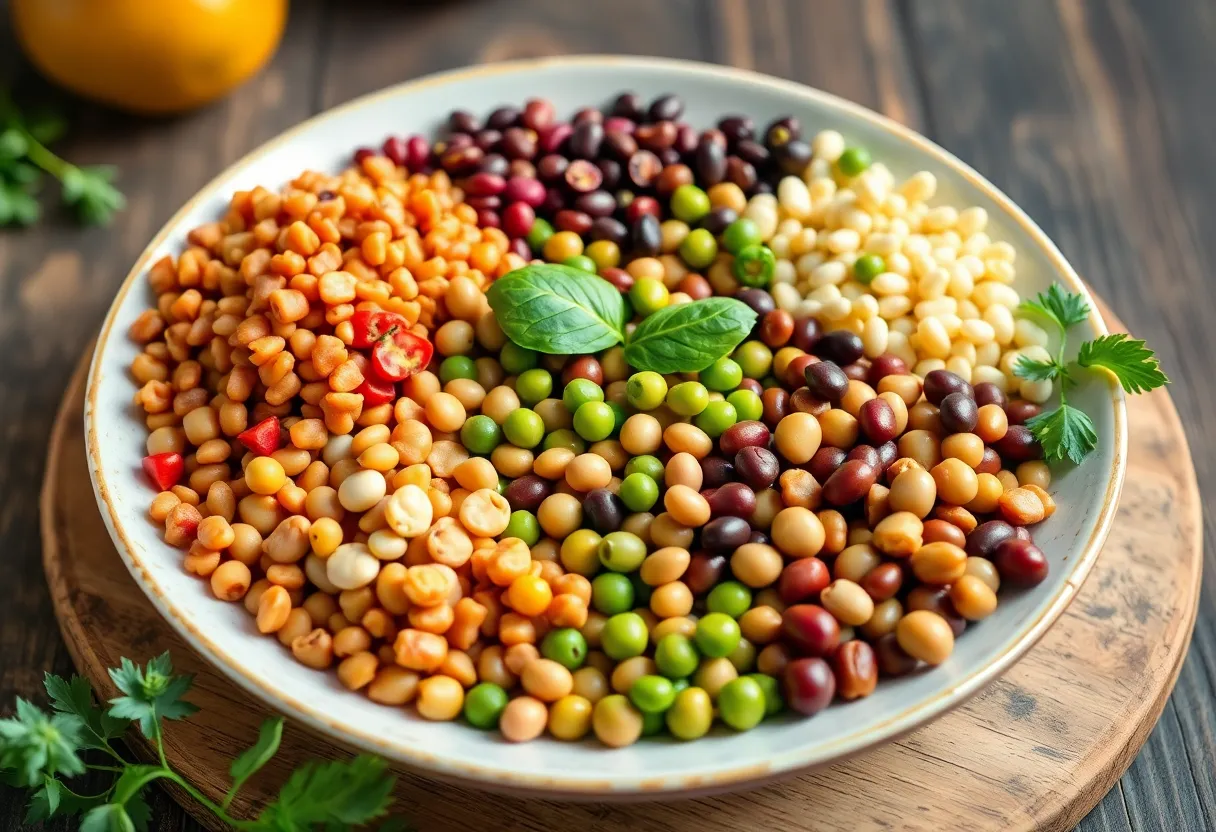News Summary
Nutrition experts emphasize the importance of gradual changes in diet to achieve sustainable healthy eating habits. By integrating small adjustments and focusing on legumes, individuals can improve their overall health while also benefiting the environment. This gentle approach fosters a more enjoyable and manageable transition towards a nutritious lifestyle, encouraging long-term wellness without overwhelming guilt or drastic changes.
Take Baby Steps Towards a Healthier Plate: Experts Share Dietary Wisdom
Many of us know the struggle of diving headfirst into the world of healthy eating, only to find ourselves feeling overwhelmed and burnt out just a few weeks in. The good news? You don’t have to subscribe to extreme but unsustainable dietary changes to see real benefits! Nutrition experts advocate for a gentler approach that may just be the key to long-term success.
Setting Realistic Goals: Less is More
It turns out that setting overly ambitious health goals can often backfire. Instead of making dramatic changes all at once, nutritionists recommend taking a step back and implementing small, manageable changes over time. Think of it like building a solid foundation; gradual adjustments can help you stick to your new healthy eating habits without feeling like you’re on a rollercoaster ride of food guilt and cravings.
Get Leguminous: The Power of Beans and Peas
One clever strategy suggested by nutrition scientists is to include more legumes—such as lentils, peas, and beans—into your meals. These little gems are packed with protein and nutrients, making them a powerhouse addition to any diet. Did you know that just one cup of pinto beans can give you around 16 grams of both protein and fiber? This means you don’t have to sacrifice taste for health!
Swapping for Health: Ditching Red Meat
Feeling a bit adventurous in the kitchen? Consider replacing red and processed meats with plant-based proteins like legumes. Research shows that making this switch not only helps in improving heart health but could even lower the risk of cardiovascular disease and early death. So, by incorporating these hearty legumes into your diet, you’re doing a world of good for your body.
Environmentally Friendly Choices
And let’s not forget about the environmental benefits! Reducing our reliance on meat is a win-win. By gravitating towards meals centered around legumes, you’re also doing your part to protect the planet. Every small step counts, and your choices at the grocery store matter.
Convenience Meets Versatility
Feeling intimidated by cooking? Fear not! Legumes are not only affordable, but also versatile. They can easily be added to soups, salads, and even blended into delicious hummus for a healthy dip. These simple additions can make your meals more filling and keep you satisfied without empty calories. Plus, they can easily be incorporated into your family’s favorite dishes, making mealtime a whole lot more fun!
Integrating Small Changes for Sustainable Eating
The key takeaway from nutrition experts is to motivate individuals to adopt healthier eating habits in a sustainable way. This doesn’t mean you have to achieve the perfect diet overnight. Instead, start with one small change at a time. Whether it’s trying out a new legume-based recipe once a week or simply swapping out red meat for a bean stew, every little bit makes a difference. Before you know it, these small intentional changes can lead to lasting improvements in your health.
Ultimately, the journey to healthier eating doesn’t have to feel daunting. With a little patience and a sprinkle of creativity, achieving better health is just a few spoonfuls away. So why not take that first small step today? Your body and the planet will thank you!
Deeper Dive: News & Info About This Topic
- Financial Times Article 1
- Wikipedia: Nutrition
- Financial Times Article 2
- Google Search: Healthy Eating Tips
- New York Times Article
- Google Scholar: Sustainable Eating
- New York Times Wirecutter Review
- Encyclopedia Britannica: Plant-Based Diets
- New York Times Article on Longevity
- Google News: Dietary Changes
}







